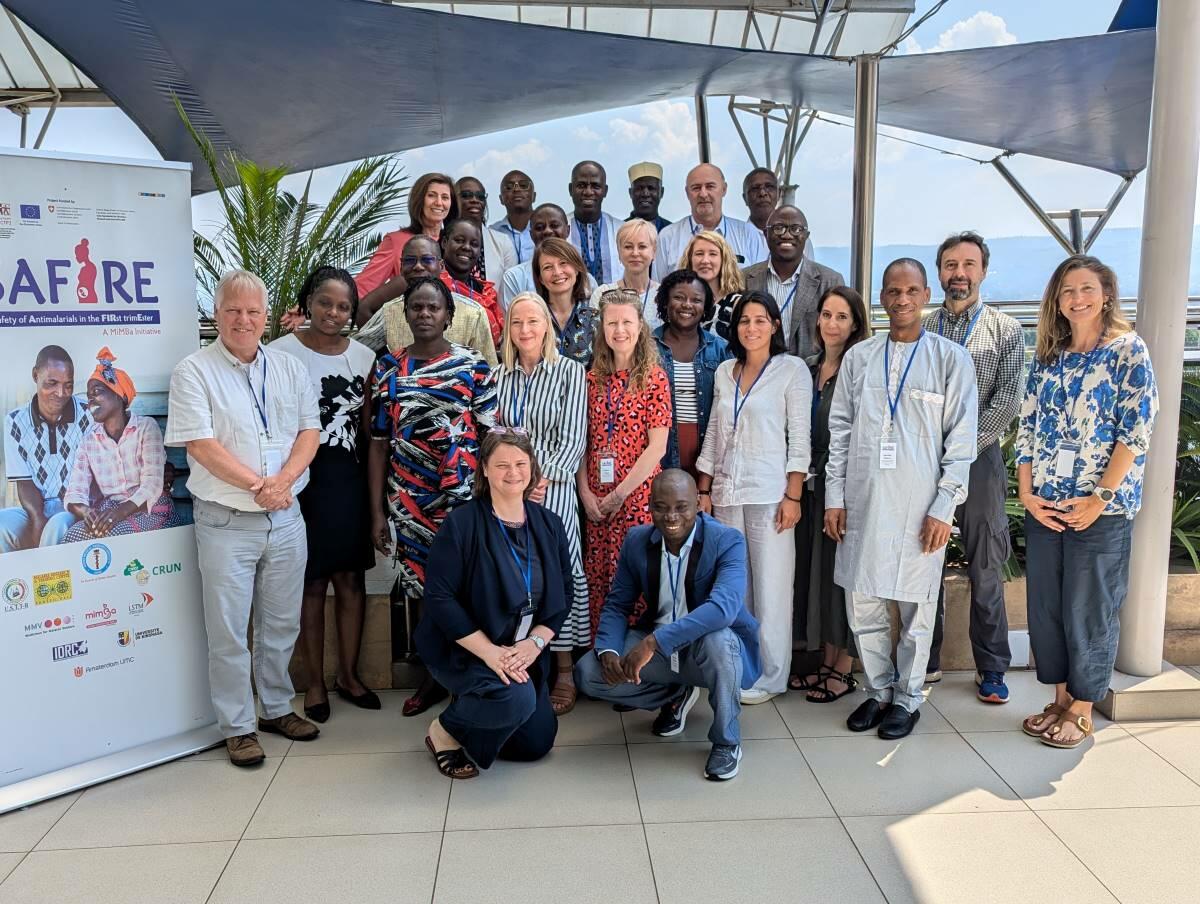
Liverpool School of Tropical Medicine is supporting the first Phase 3 clinical trial of antimalarial medicines for women in their first trimester of pregnancy.
The SAFIRE consortium will evaluate the efficacy, safety, tolerability and cost-effectiveness of drugs to treat uncomplicated malaria. Results will feed into policy and guidelines to ensure that women have the best possible treatment options in early pregnancy.
SAFIRE is made up of scientists and social researchers, established to address the evidence gap in the use of antimalarial drugs in early pregnancy.
Despite the significant health risks associated with malaria in pregnancy — such as miscarriage, stillbirth, preterm delivery and low birthweight, severe maternal anaemia, severe malaria and maternal mortality — women in their first trimester are left with few medicines for treatment (and none for prevention).
Artemisinin-based combination therapies (ACTs) are the first-line malaria treatment recommended by WHO. However, there is only one ACT, artemether-lumefantrine (AL), recommended for use as of 2022 to treat uncomplicated malaria in the first trimester. Although this is a major step forward towards achieving equity in malaria treatment choice — regardless of gender or pregnancy status — emerging drug resistance in several African countries is now a major concern.
The new trial is co-sponsored by Medicines for Malaria Venture and Liverpool School of Tropical Medicine (LSTM), who will provide scientific technical input.
SAFIRE is co-ordinated by the Amsterdam University Medical Center, with scientific co- leadership by the University of Sciences, Techniques and Technologies of Bamako (USTTB) and Kenya Medical Research Institute (KEMRI). It is funded by the Global Health EDCTP3 Joint Undertaking (EDCTP3), a partnership funded by African and European countries as well as the European Union, and the Swiss State Secretariat for Education, Research, and Innovation (SERI).
Dr Hellen Barsosio, one of the project’s scientific co-leads and a Research Scientist of maternal and newborn health at KEMRI, said: “We are thrilled to begin this first-of-its-kind trial. Pregnant women are typically excluded from clinical trials for fear of causing harm to the mother and the baby she is carrying. Determining which antimalarial medicines are efficacious and well tolerated in the first trimester will benefit all women of childbearing age, including those who may be unaware that they are pregnant, by enabling them to take these medicines without risk of causing harm to themselves or their unborn babies”.
The data generated by SAFIRE; which will begin in Burkina Faso, Kenya and Mali; will support the design of future trials targeting other infectious diseases, especially those that affect pregnant women in their first trimester in low- and middle-income countries.
Dr Stephanie Dellicour, Pharmacoepidemiologist and Principal Investigator at LSTM, said: "We are excited to support this groundbreaking trial. This initiative addresses a critical gap in maternal healthcare and has the potential to expedite the identification of effective and safe treatment options for women of childbearing potential and those in their first trimester of pregnancy at risk of malaria. The outcomes of this trial will be pivotal in shaping future malaria treatment guidelines in the context of diversification of antimalarial treatment options."